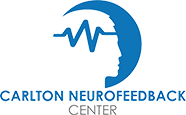Experiencing trauma is more common than you might think in this day and age. Chances are very good you either know someone or personally witnessed a frightening event where you or a loved one’s life was in danger. Mass shootings seem almost commonplace. Natural disasters, war atrocities, and terror bombings can create changes in the general state of people`s minds, leading to feelings of fear and anxiety. Personal experiences, such as sexual abuse, bullying, and even severe illnesses or an accident, can create lasting changes in how we perceive the world. According to the National Center for PTSD, 1 in 6 men and 1 in 5 women will experience a traumatic event in their lifetime. Exposure to a traumatic event doesn’t mean that a person will develop PTSD, but it does put them at greater risk.
What effects do PTSD have on the brain?
PTSD causes the brain to overreact and remain in a constant state of alert. This constant state of hypervigilance can lead to anxiety, sleep disturbances, attention and focus issues, and long-term, severe mood imbalances. People typically report they feel jumpy as if on “red alert” because it is so difficult to relax and maintain a calm state. Check out this online screener to see if your symptoms qualify and if you might benefit from medical care.
How is PTSD typically treated?
After a thorough diagnosis by a medical professional, medication is typically combined with different types of talk therapy.
While effective in many cases, talk therapy requires the patient to re-live the traumatic experience repeatedly to develop the coping skills needed to deal with the emotions they produce.
The medications used to relieve the symptoms of PTSD come in many different types. For depression, the most common medications are SSRI`s . These drugs act to increase the blood levels of Serotonin by preventing the normal re-absorption that occurs over time. According to WebMD, it can take months for the full effects of medication to be realized. They can also cause a host of undesirable side effects, including insomnia, headaches, agitation or nervousness, stomach issues, and even an increased risk of suicide!
For the anxiety associated with PTSD, benzodiazepines are commonly used. Unfortunately, these medications are highly addictive, and their use for long periods can create as many problems as they solve.
Is there a better way to relieve the symptoms of PTSD?
Yes. Neurofeedback therapy has shown great promise in eliminating the symptoms associated with PTSD. According to one study, the participants were diagnosed with chronic PTSD and had not responded to at least six months of psychotherapy. After the treatment, 73% of patients experienced such an improvement that they no longer met the diagnostic criteria for PTSD! Neurofeedback focuses on helping the brain re-learn how to regulate itself using an approach from behavioral therapy known as operant conditioning. If you`ve ever learned how to do a new skill, such as riding a bike, you`ve used operant conditioning to do so. It`s a fully natural process. Even better, once learned, the brain continues to use the new, calmer thought patterns long after their last training session has been completed. The result- no more PTSD symptoms!
Learn More About Neurofeedback
If you’re looking for a drug-free approach to reduce or eliminate PTSD symptoms, neurofeedback can help. This non-invasive treatment is painless, and the results are long-lasting. Best of all, it doesn’t involve revisiting experiences you’d prefer not to relive. If you are located in Northern Virginia and are looking for help for PTSD symptoms that are affecting your life, contact Dr. Ed. Carlton, DC, BCN, for a free, in-person evaluation to learn more about how this innovative form of biofeedback can spell relief for the after-effects of trauma.


